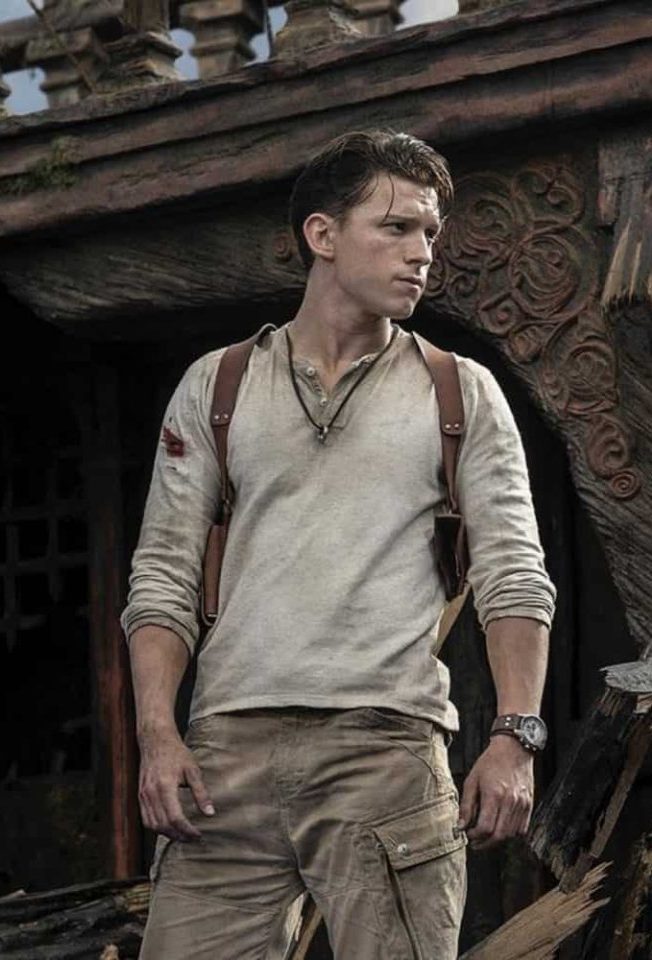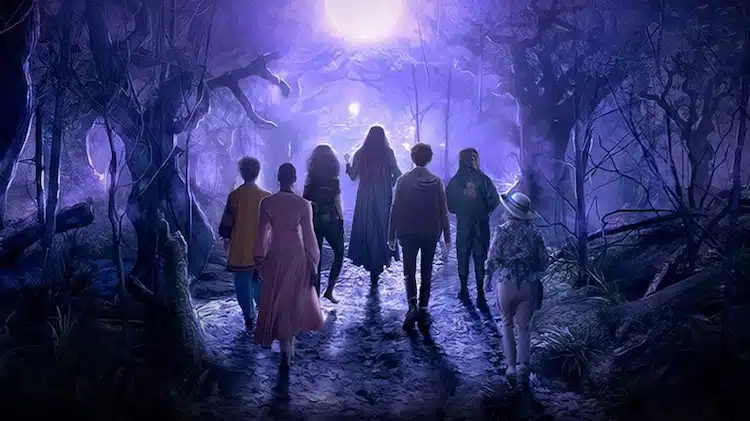
Forty years ago, video games were video games, and films were films. Video games were simple, and the film industry wasn’t eager to produce a Pong sports drama or a Pac-man action-adventure. But as game technology advanced and became more widely accessible, filmmakers started to see the marketing and storytelling opportunities in them. In the 1980s, films started inspiring games. In the 1990s, we saw the inverse with games inspiring films. By 2020, it was common for a franchise story to extend to both film and games in equal measure. Let’s take a look back at how all this started with the retro games that launched this merged storytelling.

Star Wars is the pioneer of linking film and video games. In the early 1980s, we got several Star Wars games for the Atari 2600 and other early consoles and PCs. Over the last forty years, there have been nearly 200 separate Star Wars video game titles, including consoles, PC, mobile, browser, and the Lego franchise games. [Wikipedia] In 2013, Lucasfilm established its Story Group, a division of the company responsible for verifying and maintaining Star Wars canon stories across film, television, games, and other media. Since then, the game-film connection has come full circle. Originally non-canon games like Star Wars: The Old Republic (2011) have had Story Group input in its expansions, and the original story created for Star Wars Jedi: Fallen Order (2019) is an official part of the broader Star Wars canon. [Wookieepedia, Park] We’ve also seen evidence of previously non-canon game lore, like Revan and the Mandalorian-Jedi-War, getting subtle references in canon Star Wars productions. [Mithaiwala, Dyce, Sherrill]

But Star Wars is a special case. Other stories that originated on film had to find their own paths. Through the 80s and 90s, movie and television producers capitalized on the growing popularity and availability of video games as a way to market their films. We’ve seen some of these console and arcade games featured in Retro Replay with varying levels of quality: Die Hard, Goldeneye, The Matrix, and several others. Often, the stories in the game were the same as the film or a side story for the film. For a few games, there wasn’t much story, just an attempt to capture the film’s action in an interactive game experience.
(Sidenote: it’s hard to put comic-based video games into this conversation given that both the films and the games draw their core source material from the comics. I wanted to make this article about stories that originated in games and film rather than other media. But the comic-based video games definitely deserve their own retrospective!)

Let’s step back and look at the reverse trend: the movies based on video games. The earliest films in this category include live-action Super Mario Bros. (1993), Double Dragon (1994), and Street Fighter (1994). The more successful Mortal Kombat (1995) even featured actor Christopher Lambert, who was well-known for his role in the film Highlander (1986). Animated films and series also popped up, like Ninja Gaiden (1991) and Sonic the Hedgehog (1996), though often with less popularity than their live-action counterparts.[Wikipedia] Each film had varying degrees of success in creating an interesting story from a game that may not have had a rich plot or story.
Special effects can only propel the film so far without a compelling story for fans to latch on to.
Pokémon, which debuted in the late 90s, was the first franchise to really blur the storytelling lines between game and film. The Pokémon anime inspired by the game became so popular that the games and anime together became a tightly coupled franchise. Fans of the games would watch the anime, and fans of the anime would play the games. This success has kept the franchise flourishing for over two decades on both of those entertainment platforms. [Madnani, Britannica]
And speaking of serial television, remember that trend in the 1980s to create television shows to market a toy series, like G.I. Joe and Transformers? By the 1990s, the video games themselves were the “toys,” and the games were telling their own stories. Perhaps that’s why success in making a film or TV series based on a game started requiring that filmmakers engage the audience with a good story. If the game’s story wasn’t interesting to start with or made for a poor premise for a film or TV show, screenwriters had a difficult task on their hands. Special effects can only propel the film so far without a compelling story for fans to latch on to.

Over time, film and TV based on games started to shift into two camps: fun romps with a beloved character (like Sonic or Pikachu) or stunning action-adventure pieces that build on the rich stories from the game. It’s that second camp where story writers started getting comfortable telling stories across both games and films. Lara Croft: Tomb Raider (2001) and Resident Evil (2002) were incredibly successful and went on to have sequels in both film and games. Warcraft (2016) had a lukewarm reception in the U.S., but it had a big success worldwide, and it encouraged a resurgence of interest in World of Warcraft.[McFarland] Currently, The Witcher (2019-present) series on Netflix, starring long-time gamer and Witcher fan Henry Cavill, has inspired interest in both the original books and The Witcher video games. Does this mean a new Witcher game is around the corner, too?
But even among the films that are built on a rich game lore, there are still the occasional shortcomings at the box office. Assassin’s Creed (2016) was highly criticized for its style and how it interpreted some of the game’s central concepts. Thus, it wasn’t well-received by existing franchise fans, and it was difficult to follow for casual movie-goers not heavily steeped in the game lore. [Rotten Tomatoes] It’s not surprising, then, that fans are cautious about the upcoming film based on beloved story-centric game franchise Uncharted, featuring Retro Replay’s Nolan North. [Jones]
Suffice to say that video game’s history and culture itself has inspired its own storytelling.

While we’re here, I want to mention the “meta” category of films inspired by video gaming culture. One of the earliest films in this category was Tron (1982), which featured a software engineer who was running a video arcade and was forced to play arcade-like games to survive the digital world he was trapped in. Films like The Last Starfighter (1984) and Wreck-It Ralph (2012) created fictional worlds tied to video games. Ernest Cline’s novel Ready Player One, which made retro video games of the 80s a major component of the story, also came to film in 2018. Suffice to say that video game history and culture itself has inspired its own storytelling.
What does the future look like for storytelling across games and film? It’s clear that franchise consumers are looking for a cohesive story across all media associated with a franchise. I believe we’ll continue to see games, film, and TV making a single storytelling effort, giving all media properties a sense of cohesion. As we’ve seen with Star Wars, this extends to comics, books, and more. No matter how we choose to consume a story, we’ll be able to count on rich, engaging storytelling.



